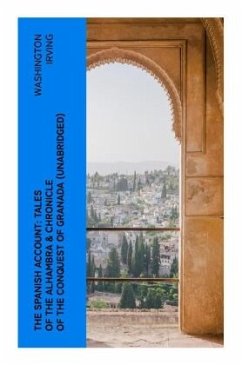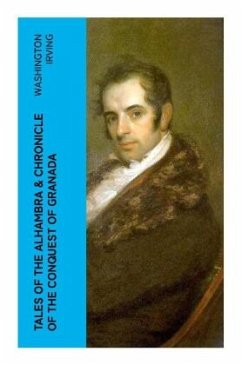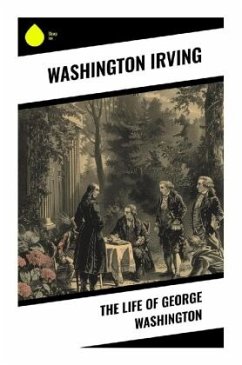
Tales of the Alhambra & Chronicle of the Conquest of Granada
Versandkostenfrei!
Versandfertig in 6-10 Tagen
22,10 €
inkl. MwSt.

PAYBACK Punkte
0 °P sammeln!
In "Tales of the Alhambra & Chronicle of the Conquest of Granada," Washington Irving artfully weaves together a tapestry of richly detailed narratives that explore the enchanting landscapes and historical transformations of Spain, particularly focusing on the Alhambra Palace and the Moorish capitulation of Granada. The text exemplifies Irving's trademark Romantic style, characterized by lyrical prose, a deep sense of nostalgia, and a blend of fact and fiction that vividly evokes the cultural and architectural splendor of 19th-century Spain. Through personal observations and imaginative storyte...
In "Tales of the Alhambra & Chronicle of the Conquest of Granada," Washington Irving artfully weaves together a tapestry of richly detailed narratives that explore the enchanting landscapes and historical transformations of Spain, particularly focusing on the Alhambra Palace and the Moorish capitulation of Granada. The text exemplifies Irving's trademark Romantic style, characterized by lyrical prose, a deep sense of nostalgia, and a blend of fact and fiction that vividly evokes the cultural and architectural splendor of 19th-century Spain. Through personal observations and imaginative storytelling, Irving presents both historical figures and mythical tales, inviting the reader into a world illuminated by the contrasts of light and shadow inherent in the Moorish legacy. Washington Irving, often hailed as the Father of American Literature, was deeply influenced by his travels in Europe. His encounters with the Moorish architecture of the Alhambra ignited his imagination, leading him to reflect on themes of cultural clash and historical memory. His background in law and his role as a diplomat provided him a unique lens through which to view the complexities of Spanish history, as he balanced his insights with romantic ideals. Readers seeking an engaging blend of history, adventure, and lyrical beauty will find "Tales of the Alhambra & Chronicle of the Conquest of Granada" a stimulating and enriching experience. Irving's evocative style and sensitive portrayals offer timeless reflections that resonate with contemporary themes of cultural identity, making the book a must-read for anyone interested in the intersection of history and literature.












